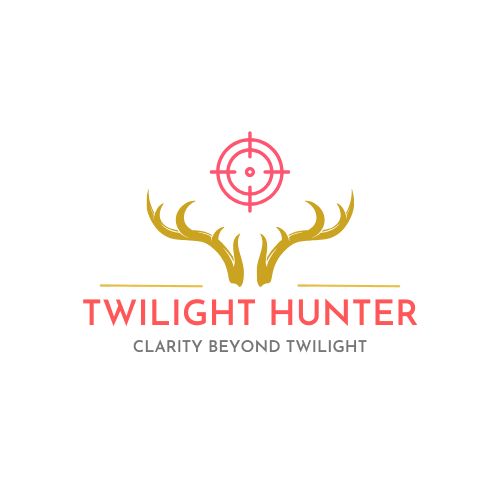

Hunting season is an exciting time for many, but safety should always be the top priority. As small animal hunting opens up, experts emphasize the importance of taking it slow and not rushing into the activity, especially for first-time hunters.
They recommend finding a mentor or experienced hunter to guide you and ensure safety in the field. Communication is key, and hunters should be specific about their location and estimated time of return. Wearing high-visibility clothing, making sounds, and using a flashlight at night are also crucial safety measures.
While hunting can be a rewarding experience, it’s essential to treat every firearm with caution and follow proper handling protocols. Whether you’re a seasoned hunter or a novice, prioritizing safety is a must.
Choosing the Right Equipment
When it comes to hunting, selecting the right equipment is essential for a successful and safe experience. One of the most important aspects is choosing the right firearm. There are several factors to consider, such as the type and size of game you’ll be hunting, your level of experience, and personal preference.
It’s important to choose a firearm that you feel comfortable and confident using. If you’re a first-time hunter, it may be beneficial to seek the advice of experienced hunters or consult with a knowledgeable sales associate at a sporting goods store.
Once you have the appropriate firearm, it’s crucial to ensure that your weapons are properly maintained. Regular cleaning and maintenance will not only prolong the lifespan of your firearm but also help prevent malfunctions or accidents.
Familiarize yourself with the manufacturer’s recommendations for cleaning and maintaining your specific firearm. Additionally, be sure to store your weapons safely and securely when not in use to prevent unauthorized access and accidents.
Obtaining the Proper Licenses and Permits
Before you can embark on a hunting adventure, it’s imperative to obtain the proper licenses and permits. These requirements vary by location, so it’s crucial to familiarize yourself with the hunting regulations in your area.
You may need different licenses for different types of game, and there may be restrictions on when and where you can hunt. Consult the local Department of Natural Resources (DNR) or wildlife agency for information on how to obtain the necessary licenses and permits.
Applying for licenses and permits can sometimes be a lengthy process, so it’s essential to plan. Determine the specific hunting season and any application deadlines to ensure you have sufficient time to complete the necessary paperwork.
Keep in mind that some permits may be limited or in high demand, requiring an early application. By understanding the hunting regulations and applying for licenses and permits promptly, you can ensure that you comply with the law and ready for your hunting adventure.
Preparing for the Hunt
Preparation is key when it comes to hunting. One of the first steps in preparing for a successful hunt is scouting locations. Familiarize yourself with the terrain and habitats in the area you plan to hunt.
Look for signs of game activity, such as tracks, droppings, or feeding areas. This will help you identify the best spots to set up and increase your chances of a successful hunt.
In addition to scouting locations, it’s crucial to create an emergency plan. While hunting can be an exciting and enjoyable activity, it’s essential to be prepared for unexpected situations. Make sure someone knows where you’ll be hunting and your estimated time of return.
This way, if you encounter any emergencies, others will know where to look for you. Pack essential emergency supplies, such as a first aid kit, extra food and water, a map, and a compass. Being prepared for emergencies can help ensure your safety and the safety of others.
Developing Hunting Skills
To become a successful hunter, it’s important to develop certain skills. One of the first skills to focus on is learning to identify game species.
Familiarize yourself with the characteristics, behaviors, and habitats of the game you’ll be hunting. This will help you differentiate between legal targets and protected species.
Safety Precautions in the Field
Safety should be a top priority when hunting. To ensure your safety and the safety of others, it’s important to take certain precautions in the field. One of these precautions is wearing high-visibility clothing.
The Department of Natural Resources often requires hunters to wear blaze orange or pink clothing to distinguish themselves from game animals. This helps prevent accidents and ensures that other hunters can easily identify you.
Another safety precaution is using whistles or calls to communicate with fellow hunters. This can help prevent accidental shootings and ensure that everyone is aware of each other’s locations. Additionally, carrying a flashlight at night is essential for visibility and navigating through the dark.
Proper Handling of Firearms
When handling firearms, it’s crucial to follow proper safety procedures. Treat every firearm as if it were loaded, even if you believe it to be unloaded. Always keep the muzzle pointed in a safe direction, away from yourself and others. By doing so, you minimize the risk of accidental discharge and injuries.
Additionally, it’s important to keep your finger outside the trigger guard until you’re ready to shoot. This reduces the likelihood of unintentional firing.
By following these guidelines and practicing responsible firearm handling, you can ensure a safe hunting experience for yourself and those around you.
Hunting with a Mentor
If you’re a beginner hunter, it can be extremely beneficial to hunt with a mentor. Taking advantage of mentor hunting programs or learning from experienced hunters can greatly enhance your knowledge and skills.
Mentors can guide hunting techniques, safety protocols, and ethical practices. They can also instill confidence and help you navigate through the challenges of your first hunting experiences.
By learning from experienced hunters, you can gain valuable insights and avoid common mistakes. They can share valuable tips and tricks that can make your hunting trips more successful and enjoyable.
Hunting with a mentor not only improves your skills but also fosters a sense of camaraderie and community within the hunting world.
Communication and Emergency Preparedness


This image is property of gray-wsaw-prod.cdn.arcpublishing.com.
Effective communication and emergency preparedness are essential aspects of a safe hunting experience. It’s crucial to inform others of your hunting location and the estimated time of your return.
This ensures that someone knows where to find you if an emergency arises. Provide specific details about your hunting area and any particular spots you plan to visit.
Carrying emergency supplies and equipment is also vital. Pack a well-stocked first aid kit, including essentials like bandages, antiseptic, and medications. It’s also wise to carry extra food, water, and warm clothing in case of unforeseen circumstances.
Being prepared for emergencies can make a significant difference in your safety and well-being while hunting.
Understanding Ethical Hunting Practices
Hunting is not just about the pursuit of game; it’s also about ethical practices and responsible stewardship of natural resources.
Knowing when to take an ethical shot is crucial for maintaining the balance of wildlife populations and preserving the integrity of hunting as a sport. Ensure that you have a clear view of your target and can make a clean, humane shot that minimizes suffering.
Is It Legal To Hunt With A Crossbow?
Understanding hunting laws and regulations is another important aspect of ethical hunting. It’s crucial to familiarize yourself with the specific rules and restrictions in your area.
This includes knowledge of bag limits, hunting seasons, and any protected species. By adhering to these regulations, you contribute to the conservation of wildlife and support sustainable hunting practices.
First Aid and Survival Skills


This image is property of gray-wsaw-prod.cdn.arcpublishing.com.
Having basic first aid and survival skills is essential for any wilderness activity, including hunting. Accidents can happen, and being prepared to provide medical assistance can save lives.
Learn basic first aid techniques, such as CPR, wound care, and fracture stabilization. Familiarize yourself with the signs and symptoms of common outdoor injuries and illnesses.
In addition to first aid skills, it’s important to be prepared for unexpected situations in the wilderness. This includes knowing how to build a fire, navigate with a compass, and signal for help.
Top 6 Recurve Crossbows for Your Hunting Adventures
Pack essential survival items like a multi-tool, emergency blanket, and water purification tablets. By equipping yourself with these skills and supplies, you can confidently handle emergencies and increase your chances of survival in the wild.
In conclusion, hunting can be a rewarding and enjoyable activity, but it requires careful preparation and adherence to safety protocols. By selecting the right equipment, obtaining the necessary licenses and permits, and developing hunting skills, you can set yourself up for a successful and safe hunt.
Remember to prioritize safety in the field by following proper firearm handling procedures, wearing high-visibility clothing, and carrying emergency supplies. Take advantage of mentorship programs and learn from experienced hunters to enhance your knowledge and skills.
.Practice ethical hunting practices, understand hunting regulations, and equip yourself with first aid and survival skills. With these tips in mind, you can have a memorable and safe hunting experience.




